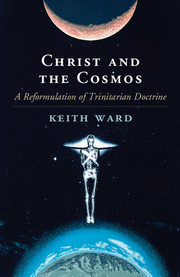Book contents
- Frontmatter
- Contents
- Preface
- Acknowledgements
- PART I THE THREEFOLD NATURE OF THE DIVINE BEING
- PART II THE BIBLICAL SOURCES OF TRINITARIAN THOUGHT
- PART III THE TRINITY, IMMANENT AND ECONOMIC
- PART IV THE SOCIAL TRINITY
- PART V THE COSMIC TRINITY
- 36 The Doctrine of Perichoresis
- 37 The Convergence of Social and One-Consciousness Models of the Trinity
- 38 Life-Streams and Persons
- 39 Modalism and Necessity
- 40 The Cosmic Trinity
- Bibliography
- Subject Index
- Name Index
36 - The Doctrine of Perichoresis
from PART V - THE COSMIC TRINITY
Published online by Cambridge University Press: 05 September 2015
- Frontmatter
- Contents
- Preface
- Acknowledgements
- PART I THE THREEFOLD NATURE OF THE DIVINE BEING
- PART II THE BIBLICAL SOURCES OF TRINITARIAN THOUGHT
- PART III THE TRINITY, IMMANENT AND ECONOMIC
- PART IV THE SOCIAL TRINITY
- PART V THE COSMIC TRINITY
- 36 The Doctrine of Perichoresis
- 37 The Convergence of Social and One-Consciousness Models of the Trinity
- 38 Life-Streams and Persons
- 39 Modalism and Necessity
- 40 The Cosmic Trinity
- Bibliography
- Subject Index
- Name Index
Summary
In Part IV I considered some main arguments in recent theology that have been offered in support of a ‘social’ view of the Trinity. This view holds that there are three persons in God in the sense of distinct centres of consciousness and will. It is obviously of great importance to decide what a ‘person’ in this sense is. First of all I examined some claims that have been made about the nature of persons, namely that persons are ontologically prior to substances. On this view, they do not evolve from unconscious substances and cannot be completely analysed in terms of unconscious substances or general ‘natures’ but in fact form the ultimate and irreducible sources of all being. They are absolutely free in that they are not bound by some impersonal necessity but determine their own beings. And they are essentially relational and cannot exist in isolation but have their being in relation to other persons in a communion of being. I made the following comments about these claims: persons should not simply be contrasted with substances, since they are themselves sentient, intelligent, and freely acting substances. They possess important creative freedom, but that freedom is not absolute, since even the ultimate being of God has a necessary nature, one part of which is precisely to possess the capacity of free creative choice. And although relation to others is a property that often fulfils personal being, persons are more than the set of relationships in which they are involved, and they have an important core of unique personal experience and self-unfolding action.
It does not seem that God, the one and only creator of the universe, either is a person or consists of three persons in these senses. God is less limited and dependent than persons, though God possesses personal properties. In particular, it does not seem to be true that if God were personal, God could not be a substance (a completely self-existent being), could not have a necessary nature, and would have to consist of more than one person. So there is not an argument for a social Trinity here, though to insist that God is freely creative and would only realise the divine nature as fully personal by relating to other (presumably created) persons is an interesting revision of some traditional Christian ideas of God.
- Type
- Chapter
- Information
- Christ and the CosmosA Reformulation of Trinitarian Doctrine, pp. 219 - 231Publisher: Cambridge University PressPrint publication year: 2015



